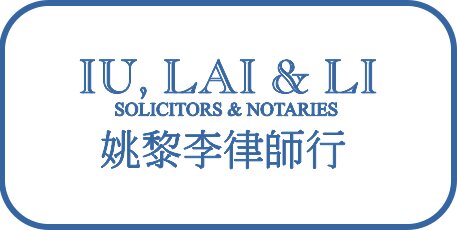Best General Litigation Lawyers in Admiralty
Share your needs with us, get contacted by law firms.
Free. Takes 2 min.
List of the best lawyers in Admiralty, Hong Kong
About Litigation Law in Admiralty, Hong Kong:
Admiralty law, also known as maritime law, is a branch of the legal system in Hong Kong which regulates maritime activities, commerce, navigation, shipping, sailors, and the transportation of passengers and goods by sea. This involves a wide range of issues such as contracts, torts, international regulations, and marine insurance. Admiralty litigation in Hong Kong is governed under a mix of Hong Kong legislation, English common law, and international conventions, with some unique attributes including the Admiralty jurisdiction of the Hong Kong High Court.
Why You May Need a Lawyer:
Admiralty litigation can be complex and requires professional knowledge of maritime legal principles, international agreements, and trade practices. Common situations requiring legal help include ship accidents, cargo loss/damage, maritime insurance disputes, ship arrests, maritime lien cases, contracts disputes, personal injury at sea, and piracy. Even seemingly simple issues could potentially involve multiple jurisdictions and complex international laws. Hence, a lawyer experienced in Admiralty law can be crucial for protecting your interests and rights.
Local Laws Overview:
The key maritime law in Hong Kong is the High Court Ordinance where the Admiralty jurisdiction of the High Court is set out. This covers claims related to the possession/ownership of a ship, disputes arising out of contract or tort related to a ship, salvage operations, and claims involving the carriage of goods or passengers by sea. Other relevant laws include the Merchant Shipping Ordinance, which governs the registration and operation of ships in Hong Kong, and the Marine Insurance Ordinance, dictating rules related to marine insurances.
Frequently Asked Questions:
What is Admiralty law?
Admiralty Law, often known as Maritime Law, is a distinct body of law which governs maritime issues and private disputes which arise on the world's oceans and navigable inland waters.
How do I know if my claim falls under Admiralty law?
If your claim involves maritime activities, navigation, shipping, the transportation of goods or passengers by sea, or numerous other maritime issues, it might come under Admiralty law. An experienced admiralty lawyer can provide clarity on the legal jurisdiction of your case.
What is a Ship Arrest?
A Ship Arrest is a legal mechanism by which a ship is seized and detained in a specific jurisdiction until a claim against the ship is satisfied or appropriate security is provided.
What is a Maritime Lien?
A Maritime Lien is a privileged claim upon sea-connected properties, such as ships, for services rendered to, or the injuries caused by, that property. Maritime liens follow the property, regardless of its owner.
What is a Salvage Claim?
Salvage claim refers to the compensation claimed by a person who has voluntarily saved a ship, cargo or other maritime properties from danger at sea, based on the value of properties saved.
Additional Resources:
The Hong Kong Maritime and Port Board, and the Marine Department of the Hong Kong SAR Government are great resources for maritime regulations and latest updates. The Hong Kong Ship Owners Association and The Hong Kong Federation of Insurers can provide industry-specific insights and advice.
Next Steps:
If you believe you need legal help in admiralty litigation, consider seeking advice from a law firm specialized in maritime law. They can help you understand your legal position, advise on the appropriate action, and represent you in court or arbitration if necessary.
Lawzana helps you find the best lawyers and law firms in Admiralty through a curated and pre-screened list of qualified legal professionals. Our platform offers rankings and detailed profiles of attorneys and law firms, allowing you to compare based on practice areas, including General Litigation, experience, and client feedback.
Each profile includes a description of the firm's areas of practice, client reviews, team members and partners, year of establishment, spoken languages, office locations, contact information, social media presence, and any published articles or resources. Most firms on our platform speak English and are experienced in both local and international legal matters.
Get a quote from top-rated law firms in Admiralty, Hong Kong — quickly, securely, and without unnecessary hassle.
Disclaimer:
The information provided on this page is for general informational purposes only and does not constitute legal advice. While we strive to ensure the accuracy and relevance of the content, legal information may change over time, and interpretations of the law can vary. You should always consult with a qualified legal professional for advice specific to your situation.
We disclaim all liability for actions taken or not taken based on the content of this page. If you believe any information is incorrect or outdated, please contact us, and we will review and update it where appropriate.















